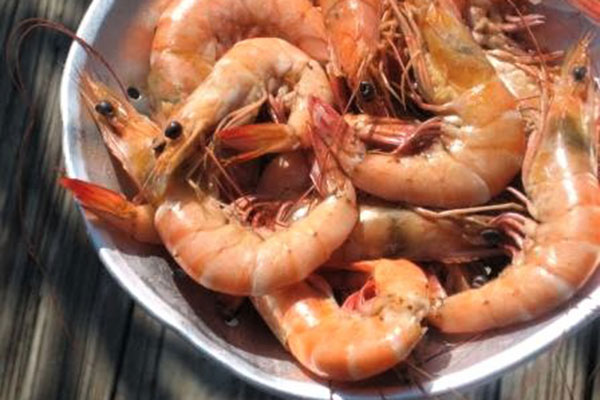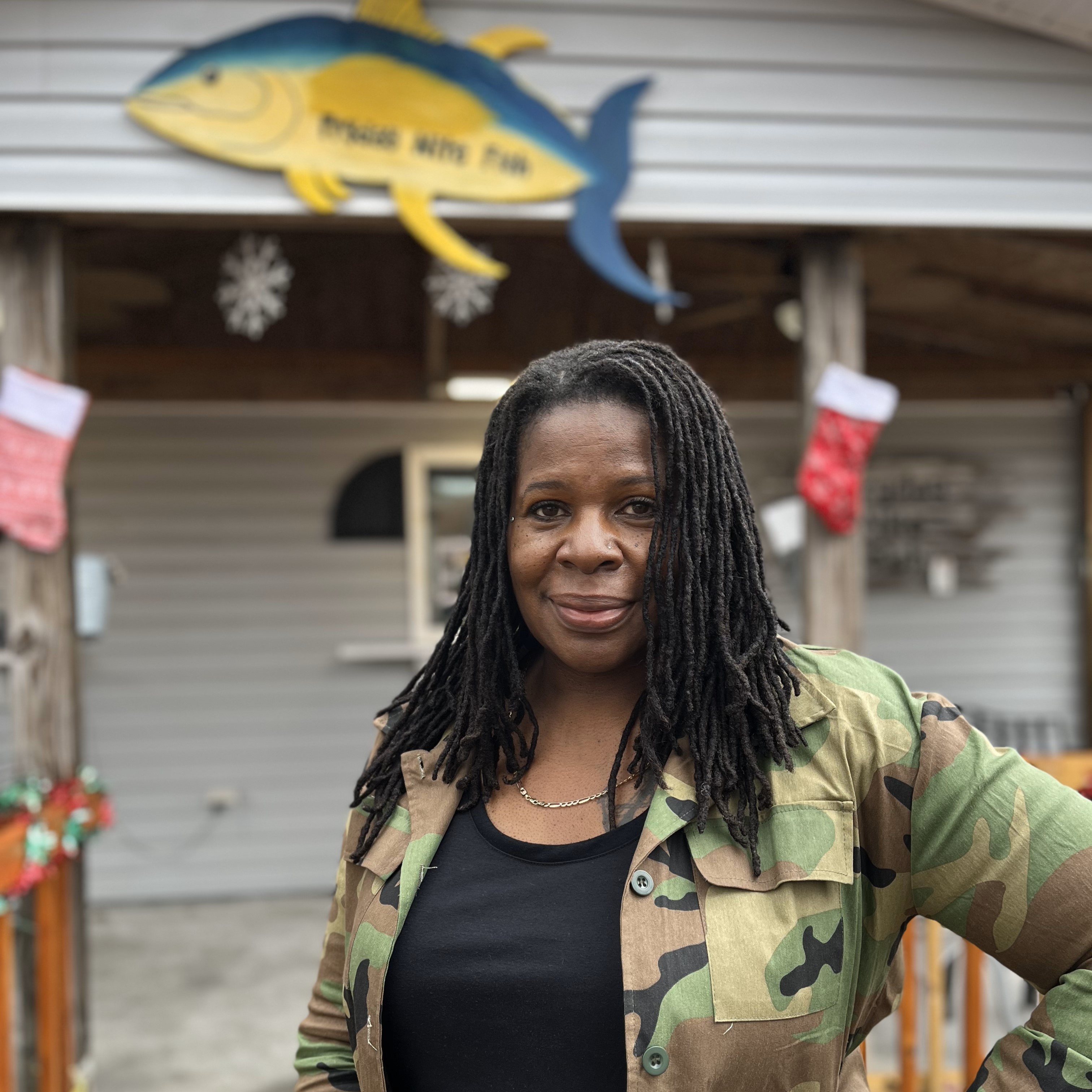What you don't know about shrimp

North Carolina commercial fishermen lead the nation in sustainable fishing practices. But they keep being labeled as 'bad for the environment'
By Barbara Garrity-Blake
Love North Carolina seafood? Shrimp, crabs, clams, oysters, and fish are public resources in North Carolina, to be enjoyed by all. But whole swaths of coastal waters are becoming off-limits to men and women who fish for a living and, therefore, you. When commercial fishermen lose access to the water, you lose access to wild-caught, local seafood.
If you like to eat local, wild-caught shrimp, you should know that the Marine Fisheries Commission, a governor-appointed body of nine members, is considering closing all inside waters, including giant Pamlico Sound, to shrimp trawling.
“But isn’t this a good thing?” you might ask. You may have seen reports that say, “trawling kills fish indiscriminately,” and that “North Carolina is the only state that has yet to ban inside trawling.” Setting aside that no other state has an “interior sea” quite like the 3,000 square miles of Albemarle-Pamlico Sound, let me share some little-known fishing facts.
North Carolina commercial fishers are not allowed to trawl in fragile fishery nursery areas, crab-spawning areas, oyster sanctuaries, small bays and rivers and designated aquatic grass beds important to marine life. All of Albemarle Sound is closed to shrimping, too. Yes, fishermen can harvest in estuarine waters, but fishery regulators carefully define and tightly manage shrimping in those locations.
Sea turtle excluder devices, better known as TEDs, are required in all trawl nets and are almost 100% effective in preventing sea turtles from getting caught in shrimp nets.
Speaking of turtles, I’ll bet you didn’t know that it was North Carolina commercial fishermen who proposed doubling commercial fishing license fees to help protect turtles. The extra dollars fishers pay covers the cost of observers who tag along on commercial fishing trips to monitor sea turtle interactions with gill nets. The fishermen’s proposal, passed in 2015, also funds new research to develop and support sustainable fishing practices.
How many industries do you know that would ask to double their own fees to pay for the government to watch them in action?
How to help: Sign up to speak for your shrimp.
North Carolina fishers were the first in the nation to install devices in their shrimp nets that let fish escape. Those devices have been required for more than 25 years. Men and women in the state's commercial fishing industry have continued to collaborate with researchers to reduce bycatch by 40% since 2015. That reduction exceeds expectations. “The largest decreases in incidental landings have been seen for weakfish (98%), Atlantic croaker (97%), flounder (93%), and spot (90%)” according to the N.C. Division of Marine Fisheries shrimp management plan.
For these reasons North Carolina commercial fishermen lead the country in sustainable fishing practices. Yet the fishing industry continues to be painted as “bad for the environment” and in need of more restrictions. I’ve even heard people characterize shrimp trawl boats as “factory ships.” Let’s take a closer look at who’s catching our shrimp.
North Carolina’s commercial fishing fleet is mostly made up of small crews who work on modest-size boats. Seventy percent of trawlers are less than 50 feet long. The most common vessel size pulling otter trawls, a type of shrimp net, is between 20 and 29 feet long. Bigger boats have three- or four-person crews while smaller boats are fished solo or with just one additional deckhand.
Kinship is a defining feature of our state's fishing industry. Most boats represent family businesses that have been passed down through the generations. Crews are often related. Wooden boats and fishing gear are typically built and maintained by local families. Seafood packing houses – better known as “fish houses” – are deeply rooted in communities.
The number of men and women who are shrimping in North Carolina waters has decreased by half since the early 2000s to 750 fishermen. The number of fishing trips is down too. Yet, shrimp landings have increased, indicating both the fishery's healthy condition and the fact that fishermen are shrimping smarter and more efficiently to get seafood on your plate.
If Pamlico Sound and other inside waters are closed, can’t fishermen simply harvest in the ocean? State fisheries officials report that most shrimp are caught in the sounds of North Carolina, and that restricting trawling to the ocean would “disadvantage” small boats.
“Disadvantage” is an understatement. Closing our sound waters would devastate Inner Banks shrimp-dependent communities like Engelhard, Swan Quarter, and Stumpy Point. The closures would put hardworking fishing families out of business. Small boats are simply not equipped to cross the vast sound to work the ocean, and to do so would put lives at risk.
These families would lose everything.
Why should you care? Because these closures would also deprive you of wild-caught, North Carolina shrimp, the kind you buy at your local farmers markets, favorite seafood shops and roadside stands on vacations to the beach. Your only access to this public resource is through licensed, professional commercial fishers. If we lose the shrimp fishery, restaurants will be forced to serve shrimp imported from elsewhere – more than likely pond-raised. Imagine having to settle for an inferior product despite having local waters that are rich with wild-caught shrimp.
Do you have a voice as a seafood consumer? Absolutely! Call your state representatives and the Governor’s office and speak up for your access to wild-caught North Carolina shrimp. Tell them you support cooperative research to further improve sustainable fishing practices. Tell them that you love North Carolina shrimp and that you support the Marine Fisheries Commission keeping our commercial fishermen on the sounds working for us.
Barbara Garrity-Blake is president of NC Catch, a former member of the NC Marine Fisheries Commission, and a fisheries social scientist.





